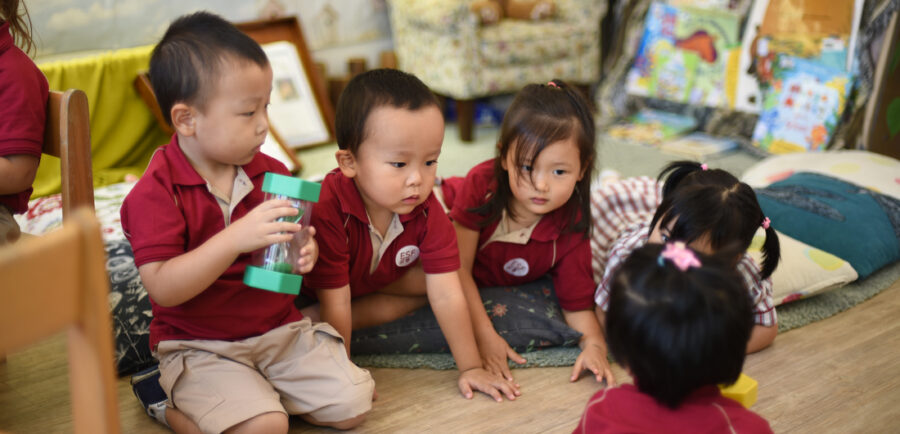

Our curriculum is based on the International Baccalaureate (IB) Primary Years Programme (PYP) and we have been an authorised ‘IB World School’ since August 2013. Children are encouraged to explore relevant concepts and ideas through child-centred play and inquiry, real-life experiences and focussed learning and teaching activities, allowing children to develop a range of understandings, knowledge and skills in all areas of the curriculum.
Throughout each day the children engage in play & inquiry within a carefully planned and prepared environment. Our environment fosters curiosity and promotes discovery by making learning challenging and relevant to the ‘real world’. Children’s prior knowledge and interests are used as a starting point from which to build on the strengths, experiences, cultural and linguistic background of each child. Children are encouraged to become independent learners and critical thinkers who are empowered to take action. The school endeavors for all children to enjoy their kindergarten experience and to develop the skills to become lifelong learners.
The IB Primary Years Programme (PYP)
Founded in 1968, the International Baccalaureate (IB) is a non-profit educational foundation offering four highly respected programmes of international education that develop the intellectual, personal, emotional and socials skills needed to live, learn and work in a rapidly globalizing world. All ESF schools use the IB programmes as the basis of the curriculum. IB programmes challenge students to excel in their studies, and encourage both personal and academic achievement. In kindergartens and primary schools, this programme is known as the Primary Years Programme (PYP).
The IB Primary Years Programme (PYP) for children aged 3 – 12 nurtures and develops young students as caring, active participants in a lifelong journey of learning. Through its inquiry-led, transdisciplinary framework, the PYP challenges students to think for themselves and take responsibility for their learning as they explore local and global issues and opportunities in real-life contexts.
The five essential elements of the PYP are:
Knowledge: Significant, relevant content that we wish the children to explore and know about, taking into consideration their interests, prior experience and understanding. The subject domains are:
- Language
- Mathematics
- Science
- Social Studies
- The Arts
- Personal, Social & Physical Education
Concepts: Powerful ideas that have relevance within the subject areas but also transcend them and that students must explore and re-explore in order to develop a coherent , in-depth understanding
Skills: Those capabilities that the students need to demonstrate to succeed in a changing, challenging world, which may be disciplinary or transdisciplinary in nature.
Action: Demonstration of deeper learning in responsible behaviour through responsible action; a manifestation of the other essential elements
For further information about the IB and its programmes, visit http://www.ibo.org
Assessment
Assessment is integral to all learning and teaching and parents/ carers should be well informed about their child’s progress. Assessments identify what students know, understand and can do at different stages in the learning process and support teachers in identifying children’s needs and next steps in learning. At Wu Kai Sha reporting includes a mixture of reports, shared learning days, check-ins and digital portfolios.
